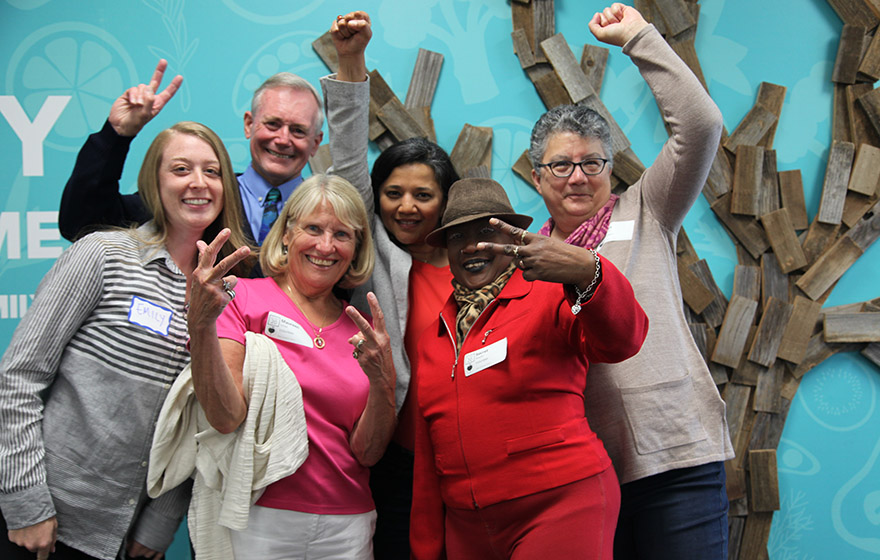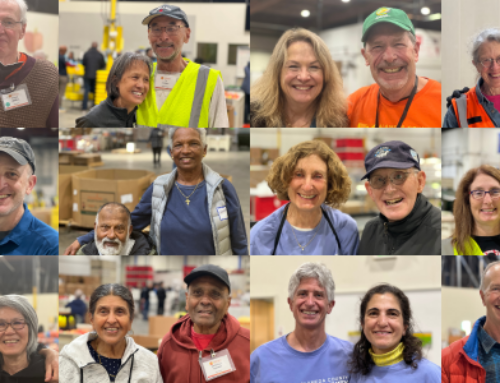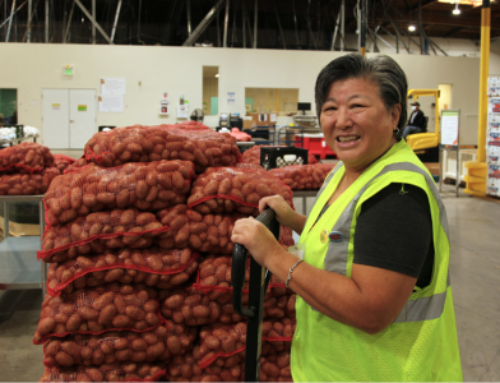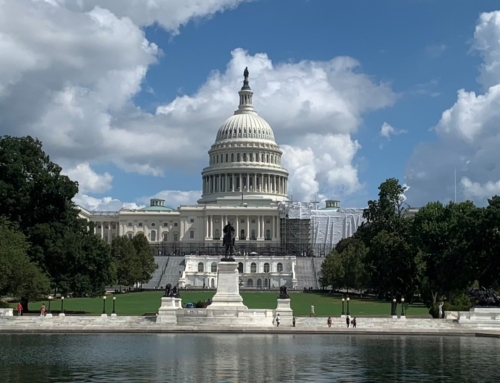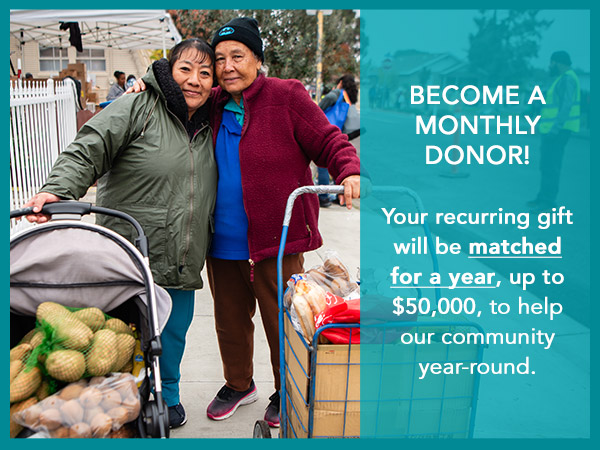Every month, thousands of volunteers come through our doors to help sort food. But there are more ways to help. Emily Willson, 24, is a recent Cal State East Bay graduate and a community ambassador at Alameda County Social Services. As a volunteer advocate with the Food Bank, Willson is a part of a forceful team of advocates that organizes events and demonstrations, gives budget testimony, and advocates for policies that work to end hunger and its root causes.
How did you first start volunteering with the Food Bank’s advocacy efforts?
Shanti Prasad, the Food Bank’s senior policy advocate, came to our California Public Policy class and talked to us about ACCFB’s advocacy work. I was a college student, so I was researching a lot – but I was eager to do something that’s on the ground. I went to the Speak Up Project in 2015, and then went to my first Hunger Action Day in Sacramento. Since then, I’ve given public comment at budget hearings, and led legislative visits. I like being around people who are motivated by change.
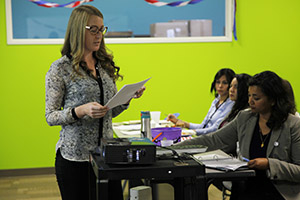
Willson educates Food Bank staff and community members on the effects of upcoming ballot measures.
What successes have you seen?
The repeal of the Maximum Family Grant was a big advocacy victory. It was a rule that said people who had children while they were on CalWorks could not receive additional aid for their child, ever. I’m an intern at social services, I actually saw how the rule impacted people. Advocates had been working to repeal that for almost 20 years. It had been written on false assumptions, and only left more children in poverty.
How do you handle frustrations? What keeps you motivated?
It’s just good to know that political change doesn’t happen overnight. The Civil Rights Movement didn’t happen overnight. From studying social and political movements, you see that nothing comes easily.
With so much uncertainty happening at the federal level right now, do you think it’s still important to pay attention and advocate at the state and local level?
We have seen the power of state and local officials to preserve our values and commitments. California has vowed to protect sanctuary cities, access to health care, the environment and many cities have taken action on behalf of causes. Even with so much discord on the federal level, we can still make a difference locally by insisting officials work to protect what is important to our communities. We can make a difference locally by insisting officials work to protect what is important to our communities.
We can make a difference locally by insisting officials work to protect what is important to our communities.
Which historical figure do you admire most and why?
Sojourner Truth. She’s the original advocate for social justice, women’s rights, and women’s suffrage. She fought to end slavery, and there were so obstacles she had to overcome.
What advice do you have for someone who wants to get involved in advocacy work?
Just to communicate with your representatives. I would have never known that before, but you can contact them, stop by their office. On Hunger Action Day, State Senator Holly Mitchell said legislators need our input now more than ever. Anyone can get involved – you don’t have to be in a group. You can call, email, reach out to them about the issues you care about.
Are you interested in volunteering as an anti-hunger advocate? Visit our advocacy page to get started.

